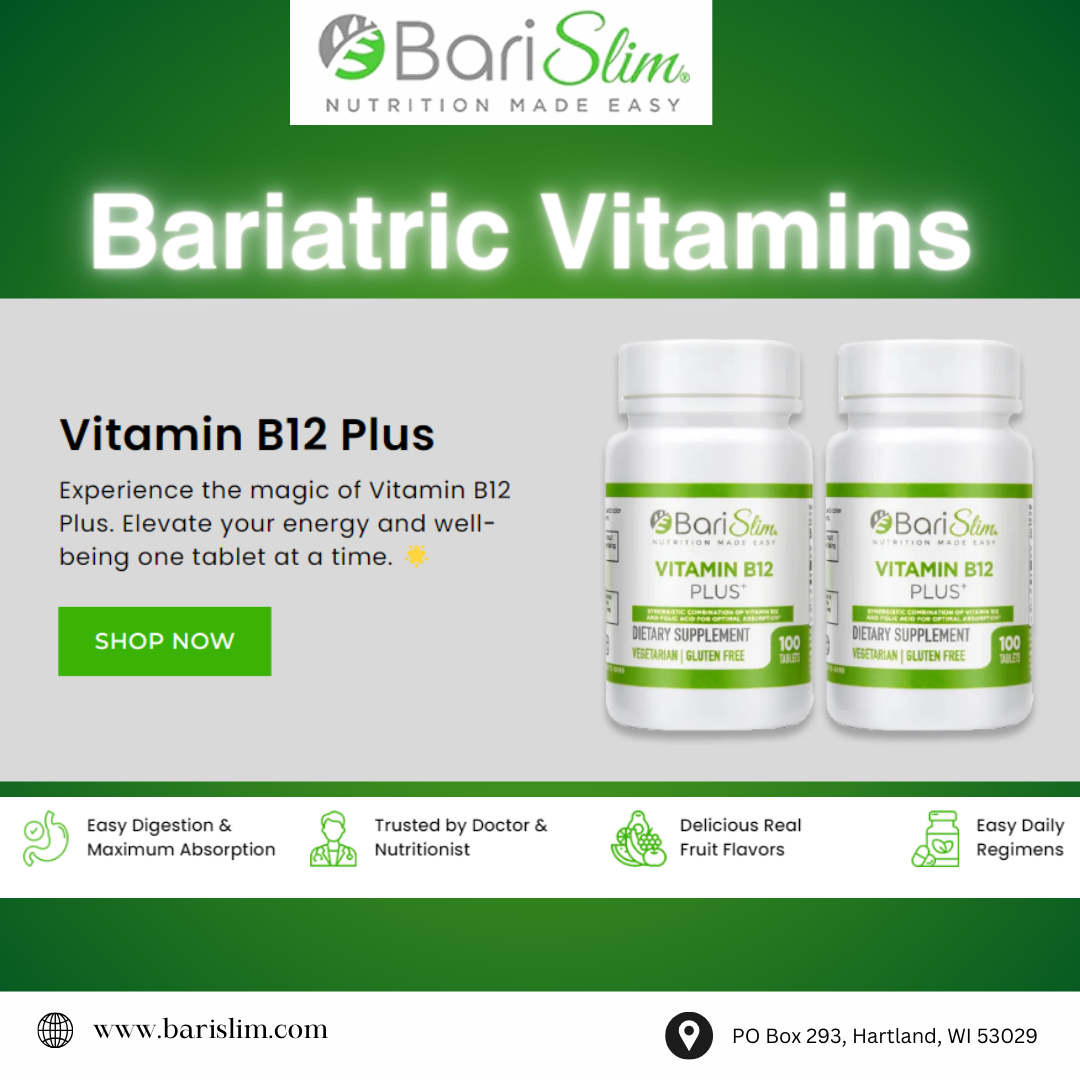Introduction to Vitamin B12 and Gastric Bypass
Gastric bypass surgery is a life-changing procedure for individuals struggling with obesity. However, it can lead to certain nutritional deficiencies, particularly in Vitamin B12. Understanding the factors influencing Vitamin B12 dosage in gastric bypass patients is crucial for their overall health.
Importance of Vitamin B12 for the Body
Vitamin B12 plays a pivotal role in various bodily functions, including red blood cell formation, neurological health, and DNA synthesis. Its deficiency can lead to severe health issues if not addressed timely.
Factors Affecting Vitamin B12 Absorption in Gastric Bypass Patients
Reduced Stomach Size and Intrinsic Factor
After gastric bypass, the stomach’s reduced size limits the amount of intrinsic factor produced, hindering Vitamin B12 absorption.
Changes in Digestive Tract
Altered anatomy post-surgery affects the absorption site for B12, impacting its assimilation into the bloodstream.
Dietary Considerations
Certain dietary restrictions following surgery might limit the intake of foods rich in Vitamin B12, necessitating supplementation.
Optimal Dosage of Vitamin B12 for Gastric Bypass Patients
Recommended Dosage Guidelines
Healthcare providers suggest higher doses of Vitamin B12 for gastric bypass patients to compensate for absorption challenges.
Forms of Vitamin B12 Supplements
Options like sublingual tablets, nasal sprays, and injections offer effective ways to administer Vitamin B12 for bypass patients.
Deficiency Symptoms of Vitamin B12
Fatigue and Weakness
One of the initial signs of B12 deficiency includes persistent fatigue and weakness.
Neurological Issues
Neurological symptoms such as tingling sensations, numbness, and memory problems might manifest due to insufficient B12 levels.
Anemia and Pallor
B12 deficiency can cause megaloblastic anemia, leading to weakness and pale skin.
Digestive Problems
Patients may experience digestive issues like diarrhea or constipation as a result of low B12 levels.
Cognitive Impairment
Severe B12 deficiency might lead to cognitive impairment, affecting concentration and memory.
Importance of Bariatric Vitamins and Supplements
Post-bariatric surgery, patients must prioritize essential vitamins and supplements to maintain overall health. Regular monitoring and supplementation of Vitamin B12 are vital to prevent deficiencies and associated complications.
Bariatric vitamins and supplements play a crucial role in the health and well-being of individuals who have undergone bariatric surgery, such as gastric bypass or gastric sleeve surgery. These procedures alter the digestive system, limiting the body’s ability to absorb certain nutrients effectively. As a result, patients often face a higher risk of nutritional deficiencies, making it essential to supplement their diet with specific vitamins and minerals. Here are some reasons highlighting the importance of bariatric vitamins and supplements:
Prevention of Nutritional Deficiencies: Bariatric surgery can impact the absorption of essential nutrients like vitamin B12, iron, calcium, vitamin D, and others. Taking supplements prescribed by healthcare providers helps prevent deficiencies that could lead to health complications, such as anemia, osteoporosis, or neurological issues.
Support for Healing and Recovery: After bariatric surgery, the body needs adequate nutrients to heal and recover. Vitamins and supplements aid in the healing process and help the body adapt to changes, ensuring a smoother recovery.
Maintaining Overall Health: Proper nutrition is critical for overall health and well-being. Bariatric supplements ensure that individuals receive the necessary vitamins and minerals to support their immune system, energy levels, and organ function.
Weight Loss and Metabolism Support: Some supplements, like certain B-complex vitamins, can assist in metabolism and energy production, which might aid in weight loss and maintaining a healthy weight after surgery.
Customized Nutritional Needs: Bariatric surgery patients have unique nutritional requirements. Specialized supplements are tailored to meet these specific needs, providing the right balance of nutrients in forms that are easily absorbed by the altered digestive system.
Conclusion
In conclusion, understanding the critical factors related to Vitamin B12 dosage and supplementation in gastric bypass patients is imperative. By considering these factors, individuals can mitigate the risk of deficiency-related complications and lead healthier lives post-surgery.
FAQs:
How often should gastric bypass patients take Vitamin B12 supplements?
Healthcare professionals often recommend regular supplementation, typically injections or higher-dose oral supplements, as frequently as monthly for some patients.
Are there dietary changes that can improve Vitamin B12 absorption post-gastric bypass surgery?
Yes, consuming Vitamin B12-rich foods like fortified cereals, dairy products, fish, and poultry can help. However, supplementation is usually necessary due to absorption challenges.
Can Vitamin B12 deficiency after gastric bypass surgery be reversed?
Yes, with proper supplementation and management, most deficiency symptoms can be reversed, preventing further complications.
What are the risks of untreated Vitamin B12 deficiency in gastric bypass patients?
Untreated deficiency can lead to serious health issues like irreversible nerve damage, anemia, and long-term neurological complications.
Is it possible to overdose on Vitamin B12 supplements?
Vitamin B12 is considered safe, and overdosing is rare. However, it’s crucial to follow healthcare provider recommendations regarding dosage.

